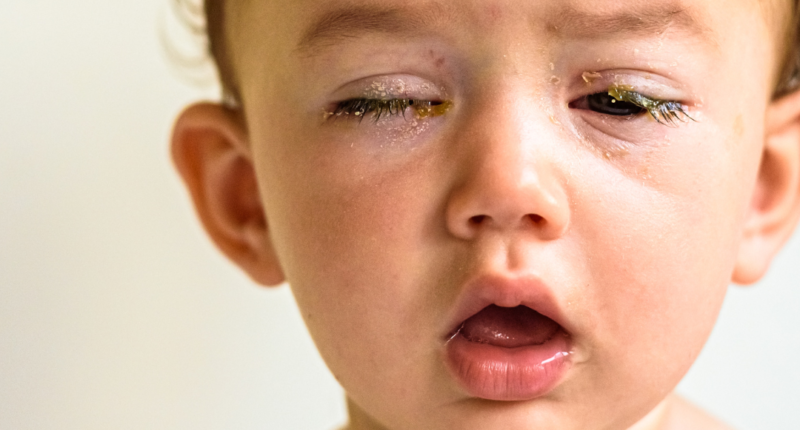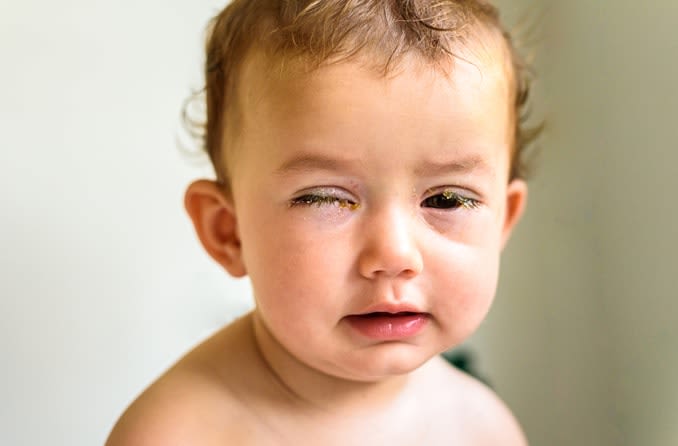With the rise in cases of conjunctivitis, commonly known as “eye flu,” in schools, it’s crucial for parents and guardians to take preventive measures to protect their children’s eye health.
In this article, we provide seven essential tips to safeguard children from conjunctivitis and prevent its spread.
Eye flu, also known as conjunctivitis, is a highly contagious infection that affects the conjunctiva, the thin tissue that covers the white part of the eye and the inside of the eyelids. It can be caused by bacteria, viruses, or allergies.
Eye flu is most common in children, and it can spread easily through contact with contaminated surfaces or fluids, such as:
- Eye discharge
- Shared towels or washcloths
- Eye makeup
- Contact lenses
- Toys
- Playground equipment
Table of Contents
Symptoms of eye flu include:
- Red, swollen eyes
- Watery eyes
- Eye discharge (may be clear, yellow, or green)
- Itching
- Burning
- Pain
- Sensitivity to light
If your child has eye flu, it is important to keep them home from school or daycare until the infection has cleared up. You can also take steps to prevent the spread of the infection to others, such as:
- Wash your hands often with soap and water.
- Teach your child to wash their hands often.
- Avoid touching your eyes.
- Do not share towels or washcloths.
- Dispose of eye makeup and contact lenses properly.
- Clean and disinfect toys and playground equipment.
If your child’s eye flu is caused by bacteria, they may need to be prescribed antibiotic eye drops or ointment. Viral conjunctivitis usually goes away on its own within a week or two.
Here are 7 tips to protect children from conjunctivitis:
- Wash your hands often. This is the most important thing you can do to prevent the spread of germs. Make sure to wash your hands for at least 20 seconds with soap and warm water, especially after using the bathroom, changing diapers, or blowing your nose.
- Teach your child to wash their hands often. Children often touch their eyes, so it’s important to teach them to wash their hands well after doing so. You can also help them develop a habit of washing their hands before eating, after playing outside, and after being around someone who is sick.
- Avoid touching your eyes. It may be tempting to rub your eyes when they’re itchy, but this can actually spread germs. If your eyes are itchy, try using a cool compress or artificial tears to relieve the discomfort.
- Do not share towels or washcloths. Germs can easily spread through shared towels and washcloths. If your child has eye flu, make sure they have their own towel and washcloth.
- Dispose of eye makeup and contact lenses properly. If your child wears eye makeup or contact lenses, make sure they dispose of them properly. You can also disinfect your child’s eyeglasses with a mild soap and water solution.
- Clean and disinfect toys and playground equipment. Germs can easily spread through toys and playground equipment. If your child has eye flu, make sure to clean and disinfect any toys or equipment they’ve come into contact with.
- Seek medical attention if symptoms persist. If your child’s eye flu does not improve after a week or two, or if it gets worse, it’s important to see a doctor. There may be an underlying medical condition that needs to be treated.
Conclusion
Protecting children from conjunctivitis requires proactive measures to prevent its spread, especially in school settings. By promoting good hygiene practices, maintaining cleanliness, and seeking timely medical attention, parents can play a vital role in safeguarding their children’s eye health and overall well-being.
Also Check | 4 Symptoms Of Juvenile Arthritis To Watch Out For
FAQs
Common symptoms include redness, itching, irritation, excessive tearing, and discharge from the eyes.
It’s important to consult a healthcare professional for proper diagnosis and treatment recommendations. They can determine the appropriate course of action.
The contagious period varies depending on the cause of conjunctivitis. Bacterial conjunctivitis is contagious until 24 hours after starting antibiotic treatment, while viral conjunctivitis can be contagious for several days.
There is no vaccine specifically for conjunctivitis. Preventive measures such as hand hygiene and avoiding touching the eyes can help reduce the risk of infection.
Conjunctivitis is usually a mild and self-limiting condition. However, prompt treatment and preventive measures are important to prevent its spread.
In most cases, conjunctivitis does not cause long-term vision problems. However, certain types of conjunctivitis may require medical intervention.










